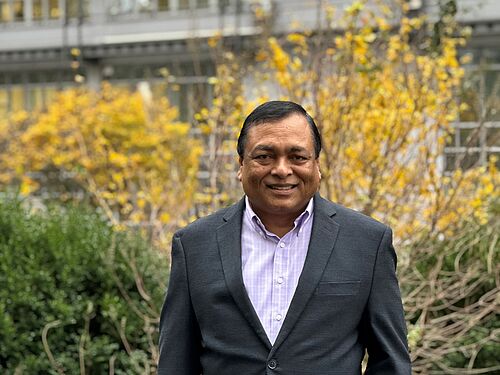Within the CASA Cluster of Excellence, we regularly welcome visiting scientists to come to Bochum and work together with our researchers. One of them is Sandip Kundu, a professor of electrical and computer engineering at the University of Massachusetts at Amherst. Before that, he worked in industry, spending almost 10 years at IBM Research and then about seven and a half years at Intel Corporation. In this interview, he talks about his current research project and his perspective on real-world impact.
Hi Sandip! You have been here in Bochum a few times. What do you think has changed here in the last few years?
I think the demographics of the students have changed. When I first came here it was not so international, but now there are a lot of international students.
What have you been working on for your research visit now, in the last month?
I have been working with students here as well as with my students at my home university. Recently, we successfully demonstrated vulnerabilities in commercial FPGA boards that are widely used, by simply examining memory that should have been erased after use. With the students here, I've been working on solutions to fix this problem.
Why is it important to do research visits in general?
Two reasons: One is that while I'm here, I'm not only in Bochum, but I'm also visiting other universities in Europe, giving talks, meeting colleagues and renewing contacts. When I do that, I also listen to what they're working on, and that also influences what I'm going to do in the future. So, it is very important to have these conversations. The second thing to consider is that in specialized fields, talent is often distributed and scattered, not concentrated in a single location. So it's important to reach out and connect with them for collective advancement.
And it's important to do it face to face and not just through online and Zoom meetings.
Yes, because we do meet in conferences, but then it's almost like meeting in a train station. You know, you're just passing through and you're doing your presentation. You don't really have that deep exchange that you have when you actually visit a place and you talk. Then you can have deep discussions.
You worked in the industry for a long time. From your perspective, how can we create real-world impact with research?
So, the most direct way we can have an impact on industry is by graduating students. When they go to work in a company, they're going with ideas that we've given them. And that is the greatest benefit to industry. Our job is not to directly advise a company on how to, you know, make more money or how to build a product. But there are also cases where industry might say there's a technical challenge that they don't have a good solution for, and that might be a starting point for new research. So, in that sense, industry feedback is also very important, because they often give us new problems that we hadn't thought of. So, I think those are the two ways of exchange: sending students and receiving that feedback.
General note: In case of using gender-assigning attributes we include all those who consider themselves in this gender regardless of their own biological sex.


